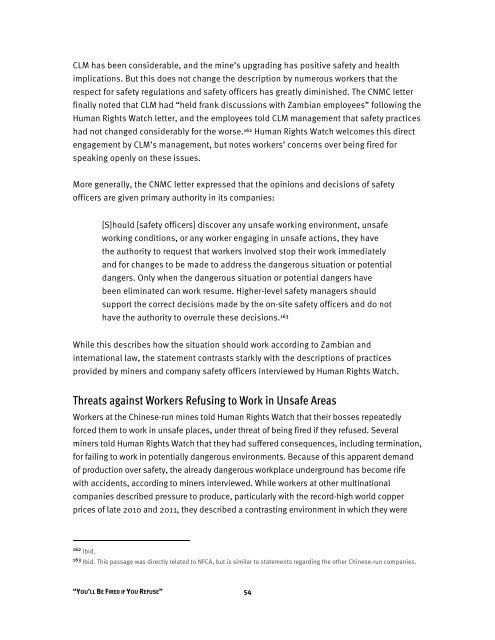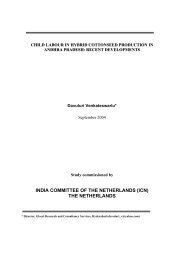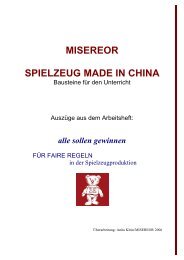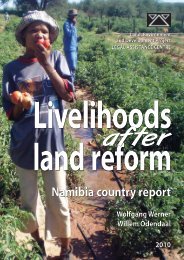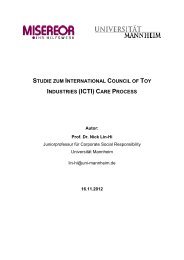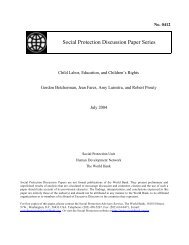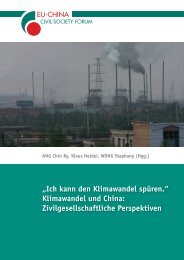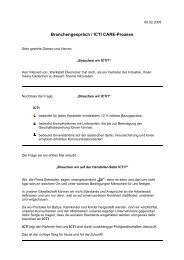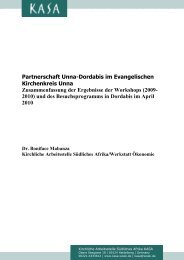“You'll Be Fired if You Refuse†- Human Rights Watch
“You'll Be Fired if You Refuse†- Human Rights Watch
“You'll Be Fired if You Refuse†- Human Rights Watch
Create successful ePaper yourself
Turn your PDF publications into a flip-book with our unique Google optimized e-Paper software.
CLM has been considerable, and the mine’s upgrading has positive safety and health<br />
implications. But this does not change the description by numerous workers that the<br />
respect for safety regulations and safety officers has greatly diminished. The CNMC letter<br />
finally noted that CLM had “held frank discussions with Zambian employees” following the<br />
<strong>Human</strong> <strong>Rights</strong> <strong>Watch</strong> letter, and the employees told CLM management that safety practices<br />
had not changed considerably for the worse. 162 <strong>Human</strong> <strong>Rights</strong> <strong>Watch</strong> welcomes this direct<br />
engagement by CLM’s management, but notes workers’ concerns over being fired for<br />
speaking openly on these issues.<br />
More generally, the CNMC letter expressed that the opinions and decisions of safety<br />
officers are given primary authority in its companies:<br />
[S]hould [safety officers] discover any unsafe working environment, unsafe<br />
working conditions, or any worker engaging in unsafe actions, they have<br />
the authority to request that workers involved stop their work immediately<br />
and for changes to be made to address the dangerous situation or potential<br />
dangers. Only when the dangerous situation or potential dangers have<br />
been eliminated can work resume. Higher-level safety managers should<br />
support the correct decisions made by the on-site safety officers and do not<br />
have the authority to overrule these decisions. 163<br />
While this describes how the situation should work according to Zambian and<br />
international law, the statement contrasts starkly with the descriptions of practices<br />
provided by miners and company safety officers interviewed by <strong>Human</strong> <strong>Rights</strong> <strong>Watch</strong>.<br />
Threats against Workers Refusing to Work in Unsafe Areas<br />
Workers at the Chinese-run mines told <strong>Human</strong> <strong>Rights</strong> <strong>Watch</strong> that their bosses repeatedly<br />
forced them to work in unsafe places, under threat of being fired <strong>if</strong> they refused. Several<br />
miners told <strong>Human</strong> <strong>Rights</strong> <strong>Watch</strong> that they had suffered consequences, including termination,<br />
for failing to work in potentially dangerous environments. <strong>Be</strong>cause of this apparent demand<br />
of production over safety, the already dangerous workplace underground has become r<strong>if</strong>e<br />
with accidents, according to miners interviewed. While workers at other multinational<br />
companies described pressure to produce, particularly with the record-high world copper<br />
prices of late 2010 and 2011, they described a contrasting environment in which they were<br />
162 Ibid.<br />
163 Ibid. This passage was directly related to NFCA, but is similar to statements regarding the other Chinese-run companies.<br />
“YOU’LL BE FIRED IF YOU REFUSE” 54


